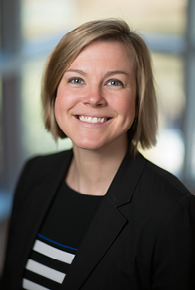
Dean Higgins
Executive Director of Program Development and Operations
The goal of CaroNova’s Comprehensive Palliative Care for Serious Illness (CPCSI) model is to establish a sustained payment mechanism for CPCSI in the Carolinas that supports access to high quality, goal-concordant, holistic and equitable palliative care and supports for patients nearing the end of life.
During the last quarter of 2023, CaroNova worked closely with BlueCross BlueShield of South Carolina (BCBSSC) and the Medical University of South Carolina (MUSC) to establish the first payor-provider collaboration for piloting the CPCSI initiative. Grant funding from the Duke Endowment was approved for MUSC to participate in a 2-year innovation sprint, with the first phase launching on January 1, 2024. Over the course of the pilot, MUSC will leverage grant funds to meet the workforce and operational requirements needed to provide comprehensive palliative care services while continuing to operate under a fee-for-service reimbursement structure. This funding approach will help confirm the business case for value-based payment arrangements needed to sustain the model long-term. CaroNova, BCBSSC and MUSC continue to collaborate weekly to refine and operationalize the innovation sprint. Since launching, MUSC initiated the hiring process for new CPCSI staff, screened their current patient panel for CPCSI eligibility, and identified the data infrastructure needs for pilot reporting. Additionally, MUSC is establishing a governance structure inclusive of sub-committees to focus on implementation fidelity, clinical operations, patient enrollment, and data/analytics processes and reporting. Each committee will create a workplan that will ultimately inform the overall CPCSI operating plan for MUSC.
Ongoing efforts revolve around exploring and nurturing additional payor partnerships in both states, including productive discussions with commercial payors in North Carolina and the South Carolina Department of Health and Human Services’ state Medicaid program. We continue to engage a provider workgroup, representing five existing palliative care programs across North and South Carolina, to co-design the overarching implementation strategy and guide. Specifically, this group has contributed greatly to the overall evaluation plan and cost modeling needed to determine an initial estimated case rate that will be evaluated during phase 1 of the pilot. As we plan for phased onboarding of additional sites in 2024, we are developing the criteria to determine readiness for future pilot participation.

Executive Director of Program Development and Operations

Senior Director, Program Implementation, NC State Team Lead, CaroNova